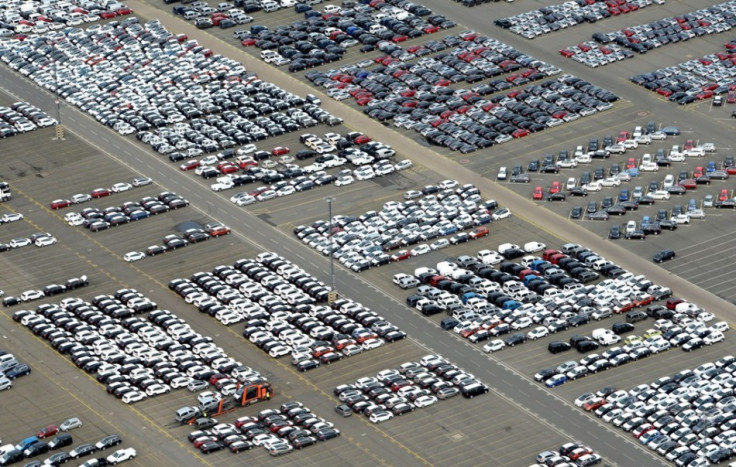German Recession Fears Mount After Industrial Output Hits Five-Year Low

In August 2014 Germany's industrial output fell to its lowest level since 2009, falling 4% month-on-month.
With July's output having been revised downward to 1.6% from 1.9%, questions are being asked about the health of the famed engine of Europe's largest economy.
The economy shrank by 0.2% in the second quarter, with analysts speculating that it may have contracted again in the third quarter of this year. The year started so well for Angela Merkel's Economy Ministry. In quarter one, the economy grew at its fastest rate for three years.
Now, optimism has taken a backseat with the erstwhile propeller of the Eurozone economy seemingly treading water. Businesses are failing to invest and trade data continues to be weak – a real worry for the continent's exports powerhouse.
Industrial orders fell by 5.7%, according to Destatis (Germany's statistical body), with capital goods output plunging 8.8% over the course of August.
The drop far surpassed the fears of analysts, a group of which polled by Reuters had suggested output would fall by 1.5%.
Germany is the major EU economy most exposed to the Ukraine crisis, given its strong bilateral trade relationship with Russia. In September, the ZEW Index of German business confidence plunged again – hitting a nine-year low.
Furthermore, the Ifo Business Climate Index for industry and trade in Germany fell in September to 104.7 points, its lowest level since April 2013.
"The German economy is no longer running smoothly," said Hans-Werner Sinn, president of the Ifo Institute.
With uncertainty over its major trading partner to the east and demand in the Eurozone also languishing in the doldrums, the concerns of German exporters may well be valid.
A statement on the ministry's website read: "Industrial production is currently going through a weak phase... but the current decline is exacerbated by holiday effects. All in all, one should expect weak production for the third quarter as a whole."
Meanwhile, analysts are now voicing real concerns over the health of Germany's economy.
The Chief Economist at ING Bank, Carsten Brzeski said: "Such a shocking number normally leads to two possible reactions: either an outcry of shock, or just denying the numbers due to monthly volatility or one-offs.
"Looking at the German numbers, the truth is probably somewhere in the middle. The sharp drop in August could at least be partly driven by the vacation period. However, the drop is too strong to explain it by one-offs.
"This means that increased uncertainty but also real slowing of the Eurozone economy, Eastern European economies and emerging markets are all currently taking their toll on the German economy."
In a note this morning, Jonathan Loynes, the Chief European Economist at Capital Economics, warned that while "August's figures clearly exaggerate the underlying weakness of the industrial sector and some rebound in September is inevitable, this won't prevent a fairly sizeable contraction in Q3 as a whole, suggesting that German GDP is likely to post only a modest rise again at best and could contract."
He added: "Overall, the figures should provide something of a wake-up call to those in the German government still resisting calls to loosen the fiscal reins and provide the Eurozone's biggest economy with more support."
Others took to Twitter to voice their concerns:
OUCH. German IP down by 4.0% MoM in August. High volatility due to holiday in particular, but still. #DasTutWeh
— Frederik Ducrozet (@fwred) October 7, 2014German IP now down by 1.1% in Q3 (after -1.5% QoQ in Q2). Huge jump required in Sept. pic.twitter.com/I4RTuRWclx
— Frederik Ducrozet (@fwred) October 7, 2014© Copyright IBTimes 2025. All rights reserved.






















